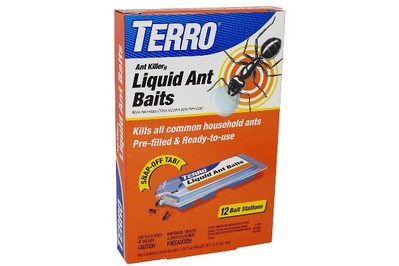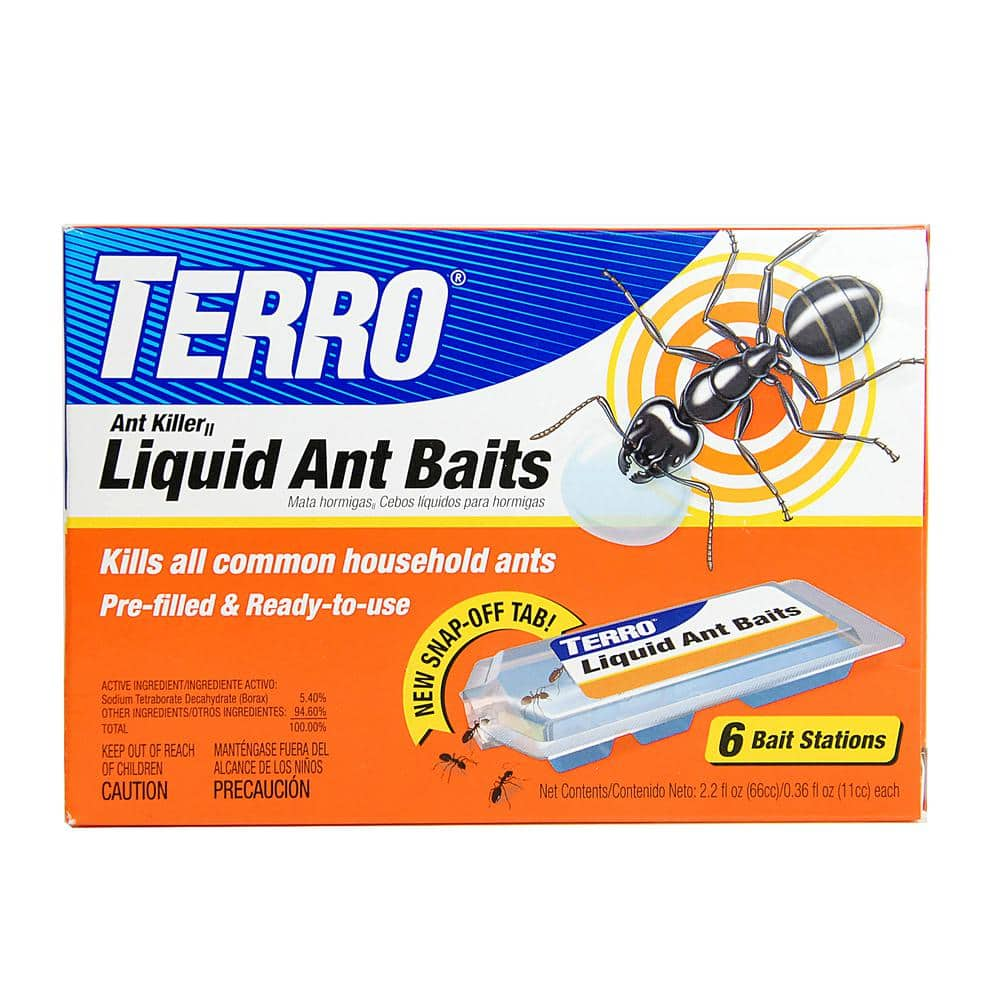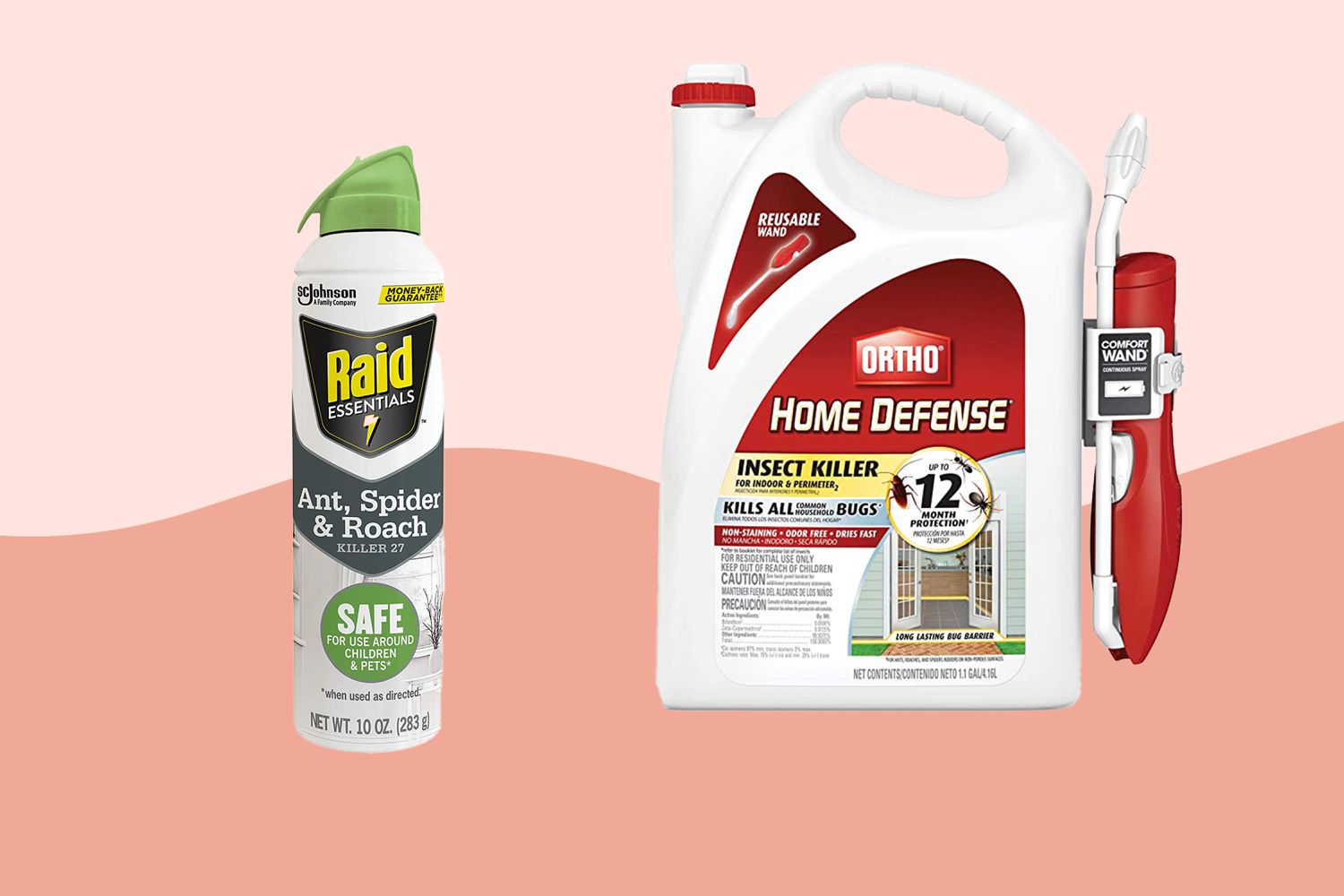The best ant killer for indoors is Terro T300B Liquid Ant Bait Ant Killer. It effectively eliminates entire colonies without causing harm to your household.
Dealing with ants in your home can be a frustrating experience. They invade kitchens, bathrooms, and other living spaces in their quest for food and shelter. A top-rated solution like the Terro T300B targets not just the ants you see but also those hidden in nests.
Using a borax-based bait, it lures ants with a sweetened liquid they mistake for food. Once ingested, the borax acts slowly enough for the ants to return to their colony and share the deadly meal with others, ensuring the demise of the population. Simple to use, this method is both convenient and proven to be effective, ensuring minimal disruption to your home life.
Introduction To Indoor Ant Problems
Ant invasions inside homes disrupt daily life and can damage property. They may seem harmless at first, but a single ant sighting often indicates a larger issue. Understanding indoor ant problems sets the stage for finding the best solutions to reclaim your home’s peace and cleanliness.
Signs Of An Indoor Ant Infestation
Identifying an ant infestation quickly prevents it from worsening. Key indications include:
- Live ants: Seeing ants frequently inside, especially in kitchen areas.
- Ant trails: Lines of ants indicate trails toward food sources.
- Nests: Look like small piles of dirt or debris.
Why Controlling Ants Indoors Is Crucial
Effective ant control inside homes is important for several reasons:
| Reason | Explanation |
|---|---|
| Health risks | Ants can carry bacteria into your food. |
| Property damage | Some ant species damage wood structures. |
| Comfort | Ants disrupt your daily comfort and cleanliness. |
Identifying the best ant killer for indoor use restores a safe and serene home environment.
Types Of Indoor Ants
Finding ants indoors can be quite the surprise. It’s important to know the different types that may be inviting themselves into your space. Identifying the specific species is crucial. Proper identification leads to effective eradication. Let’s dive into the types of indoor ants you might discover in your home.
Common Household Ant Species
Homes often play host to various ant species. Some common culprits include:
- Odorous House Ants: Identified by their rotten coconut smell when crushed.
- Carpenter Ants: Wood burrowers known for their potential to damage structures.
- Pavement Ants: Often found under floors or between walls.
- Pharaoh Ants: Small and yellow, notorious for being a challenge to control.
Identifying Different Ant Types
Recognition is key. Look for these identifiers:
| Ant Type | Size | Color | Distinct Features |
|---|---|---|---|
| Odorous House Ant | Small | Dark brown or black | Smell when crushed |
| Carpenter Ant | Large | Black or red | Wood damage |
| Pavement Ant | Small to medium | Dark brown to black | Indoor mounds |
| Pharaoh Ant | Very small | Light yellow to red | Difficult to control |
Factors To Consider When Choosing An Ant Killer
Choosing the right ant killer is crucial for a pest-free home. Below are the key factors to consider.
Safety Concerns
Your family’s well-being comes first. Opt for ant killers that are non-toxic to humans and pets. This could mean:
- Using baits in secure locations
- Opting for natural solutions like diatomaceous earth
- Checking labels for child and pet-safe endorsements
Efficacy And Speed
Quick results and long-term effectiveness are ideal. Here’s how to ensure you’re getting both:
- Select products with proven ingredients.
- Read reviews for user experiences.
- Look for guarantees from manufacturers.
Ease Of Use
Simple application means less stress. Choose ant killers that:
- Have clear instructions
- Come in easy-to-apply formats like sprays or baits
- Require minimal setup or cleanup
Environmental Impact
Choose environmentally-friendly products. Consider these aspects:
- Select ant killers with organic ingredients.
- Avoid products that harm beneficial insects.
- Check if the packaging is recyclable.
Chemical Ant Killers
Tiny invaders can disrupt your home – ants. Chemical ant killers offer effective solutions for indoor infestations. These tools vary from baits to sprays and gels. Choose the right one and say goodbye to ants.
Baits
Ant baits work by attracting ants with a tasty treat. They carry the poison back to the colony. This results in eliminating the source of the invasion. Place baits where you most see ant activity.
- Easy to use
- Long-lasting effect
- Targets the entire colony
Sprays & Aerosols
Sprays and aerosols provide immediate results. Direct application kills ants on contact. These are ideal for treating visible trails and entry points.
| Pros | Cons |
|---|---|
| Quick action | May require reapplication |
| Easy to apply | Strong scent |
Gels And Powders
Gels and powders allow for targeted application. They are excellent for tight spaces where ants hide. Gels can be applied in cracks and crevices. Powders are sprinkled along paths and near nests.
- Precise application
- Lasting barriers
- Can be used in combination with baits
Natural And Organic Solutions
Dealing with ants indoors can be tricky. Chemical ant killers might not be ideal for everyone. With natural and organic solutions, it’s possible to tackle the ant problem safely. These methods are friendly to both your home environment and the planet. Let’s explore safe, effective options for keeping ants at bay without harsh chemicals.
Diatomaceous Earth
Diatomaceous earth is a natural powder made from fossilized algae. It’s deadly to ants but safe for humans and pets. Spread a thin layer in areas where ants travel. The powder dries out the exoskeleton of ants, leading to their eradication.
Boric Acid
Another effective natural product is boric acid. Mix it with sweet bait, like sugar or syrup. Ants are drawn to the sweet mixture but the boric acid acts as a poison once ingested. This solution tackles both the workers and the colony. Use sparingly, and keep away from pets and kids.
Essential Oils
Essential oils aren’t just for aroma; they repel ants too. Oils such as peppermint, lemon, and tea tree are great deterrents. Just a few drops in water can create a natural repellent spray for surfaces ants frequent.
Homemade Recipes
- Vinegar Solution: Mix equal parts of water and vinegar to disrupt scent trails.
- Lemon Juice: The acidic nature of lemon hinders ants’ ability to smell.
- Cornmeal: While it won’t kill them, cornmeal can trap ants seeking food.
Create these mixtures and apply them to ant entry points. Regular application ensures effectiveness.

Credit: www.nytimes.com
Preventive Measures To Keep Ants Away
Winning the battle against indoor ants starts long before reaching for a spray can. Understanding and implementing the right preventive measures can keep these tiny invaders at bay. This section highlights practical steps you can take to create a fortress against ants.
Sealing Entry Points
Ants can enter homes through the tiniest openings. A thorough inspection around your space is crucial. Look for cracks and crevices, especially near windows, doors, and foundations. Seal these points with caulk or putty. Consider weather stripping for a tight seal on doors and windows.
Regular Cleaning Habits
Cleanliness deters ants from making your home their own. Wipe surfaces daily to remove crumbs and spills. Use a vinegar solution for an extra repelling effect. Be sure to vacuum regularly and take out the trash consistently. A clean home leaves no food for ants to find.
Proper Food Storage
Ants have a keen sense of smell for food sources. Keep them out by storing food in airtight containers. Ensure sweets, flours, and pet food are not accessible. It helps to keep ripe fruit in the refrigerator and regularly wash dishes to remove residues.
By combining these measures, you are setting up a fortified line of defense against ants. Start today, and enjoy an ant-free home tomorrow!
Pros And Cons Of Professional Extermination
Fighting ants inside your home can be tough. Sometimes, over-the-counter ant killers and DIY methods just don’t cut it. That’s where professional extermination steps in. Let’s explore the pros and cons, helping you make an informed decision.
When Diy Isn’t Enough
Some ant infestations are too stubborn for DIY solutions. Professionals have advanced tools and methods to tackle these problems. They identify the ant species and target the colony directly, which over-the-counter products often miss.
Long-term Effectiveness
- Professionals aim for long-term results. They employ strategies to prevent re-infestation.
- Expert exterminators often guarantee their work, offering peace of mind.
Cost Implications
| Professional Services | Cost Factors |
|---|---|
| Initial Assessment | May be free or at a nominal charge. |
| Treatment Plan | Varies based on infestation severity. |
| Follow-up Visits | Additional cost but crucial for success. |
Remember that professional extermination comes at a higher cost than DIY methods. Consider your budget and the severity of the ant problem before deciding.
Product Reviews And Recommendations
Welcome to our ‘Product Reviews and Recommendations’ section, where defeating indoor ants is our mission. Say goodbye to these unwelcome guests with our expert analysis. Discover which products work best for different ant invaders.
Top Picks For Various Ant Types
Finding the right ant killer depends on the type of ant. Here’s a quick guide:
- Baits: Ideal for sugar ants and worker ants.
- Gels: Perfect for hard-to-reach areas, effective against carpenter ants.
- Sprays: Instantly kill flying ants and deter trail formation.
- Value: Compare price per ounce or use.
- Efficiency: Some products give long-term protection.
- Application: Is the product easy to use indoors?
User Reviews And Experiences
User insights are invaluable. Check out what others say:
| Product | User Rating | Feedback |
|---|---|---|
| Ant Bait X | 4.5/5 | Excellent for kitchen ants. |
| Gel Y | 4.7/5 | Works for months. |
| Ant Spray Z | 4.2/5 | Instant action, strong odor. |
Price And Performance Comparison
Everyone loves a cost-effective solution. Compare your options:
Closing Thoughts
Tackling an ant invasion requires diligence and the right strategies. The best ant killer for indoors not only eliminates current pests but prevents future colonies. Tools and methods are plenty, yet success lies in consistent application and maintenance. Let’s review some final tips and maintenance advice to keep ants at bay.
Final Tips For Managing Indoor Ants
- Identify ant entry points and seal them.
- Choose ant baits for a targeted approach.
- Keep your home clean, especially from food crumbs.
- Use natural deterrents like vinegar or lemon juice.
- Consistently monitor for new ant trails.
Maintaining An Ant-free Home
Regular habits can fortify your home against ants. Start with basic practices that discourage ant infestations.
| Habit | Benefit |
|---|---|
| Daily sweeping | Removes food sources |
| Disposing of trash | Limits odors that attract ants |
| Storing food in sealed containers | Prevents scent trails |
| Regular inspection | Identifies issues early on |
| Professional assistance | For difficult cases |
Remember, the key to an ant-free home is persistence. If you find ants indoors, react quickly. Your efforts will create a clean, welcoming, and ant-free environment.
:max_bytes(150000):strip_icc()/raid-ant-and-roach-killer-26-f1583712a6004d6594877affa5a4f285.jpg)
Credit: www.realsimple.com

Credit: www.homedepot.com
Frequently Asked Questions On Best Ant Killer For Indoors
Which Indoor Ant Killer Is Pet-safe?
Many ant killers are labeled pet-safe if used according to instructions. Look for organic or natural products containing ingredients like boric acid, diatomaceous earth, or essential oils known for their lower toxicity to pets.
How To Apply Ant Killer Without Mess?
Ant baits come in tidy, disposable stations to minimize mess. Gel ant killers can be applied in cracks with precision. Always follow the product’s guidelines for application to ensure effectiveness and avoid unnecessary spills.
What’s The Quickest Acting Ant Killer?
Baits might take longer but gels and sprays often act within hours. Look for products with active ingredients like imidacloprid or fipronil for fast-acting solutions. Remember to read the label for the expected time frame effectiveness.
Are There Natural Ant Killer Alternatives?
Yes, natural alternatives include diatomaceous earth, which dehydrates ants, and vinegar or citrus solutions that disrupt their scent trails and deter entry. However, these methods might be less potent and more suitable as a preventative measure.
Conclusion
Choosing the right ant killer for your indoor space can feel overwhelming. However, armed with the knowledge from this post, you can make an informed decision. From natural solutions to powerful chemical options, remember to consider safety, effectiveness, and ease of use.
May your home be ant-free and your mind at ease with the perfect pick from our recommendations.

I’m MD Tanvir, and I bring years of expertise gained from working closely with pest control companies to the forefront. My journey in the industry has inspired me to launch Bug Battler, a platform aimed at equipping people with the know-how to combat pests autonomously. Through Bug Battler, I aim to empower individuals with practical insights to tackle pest infestations effectively.

